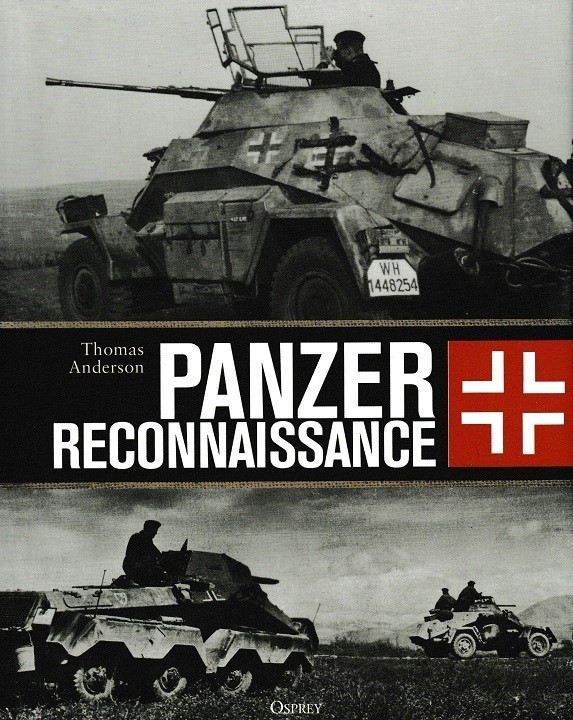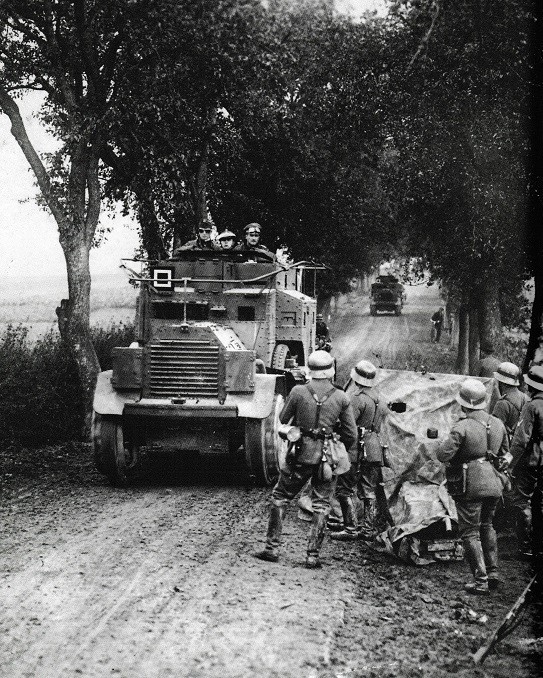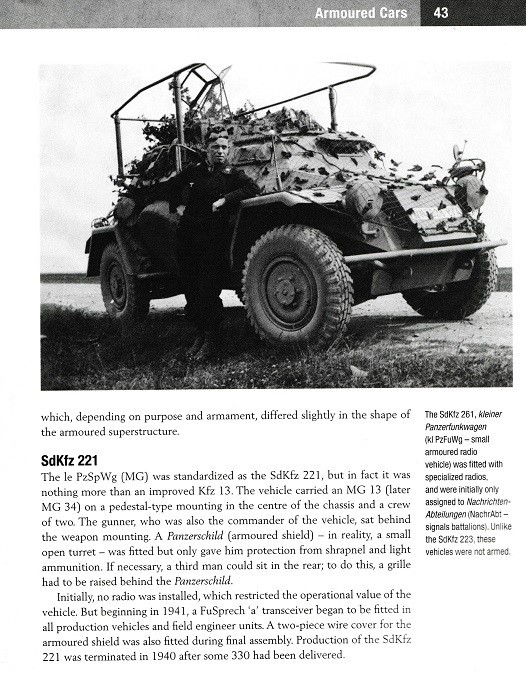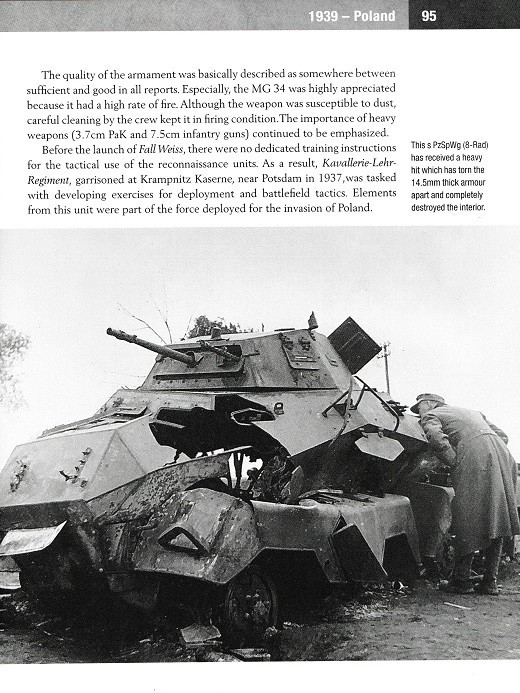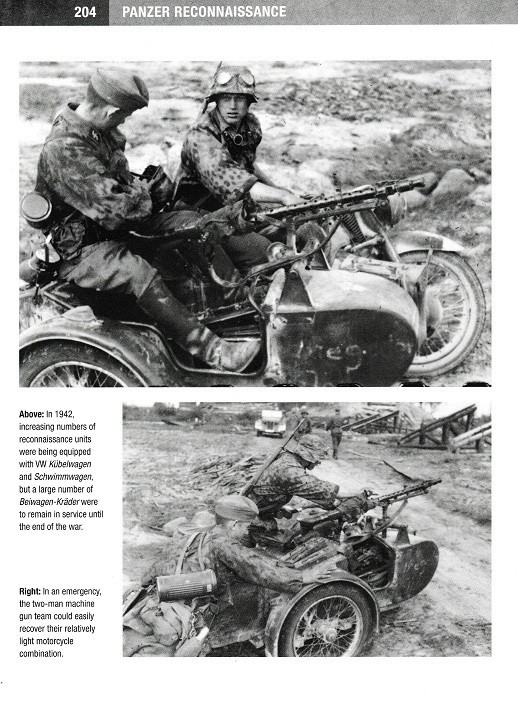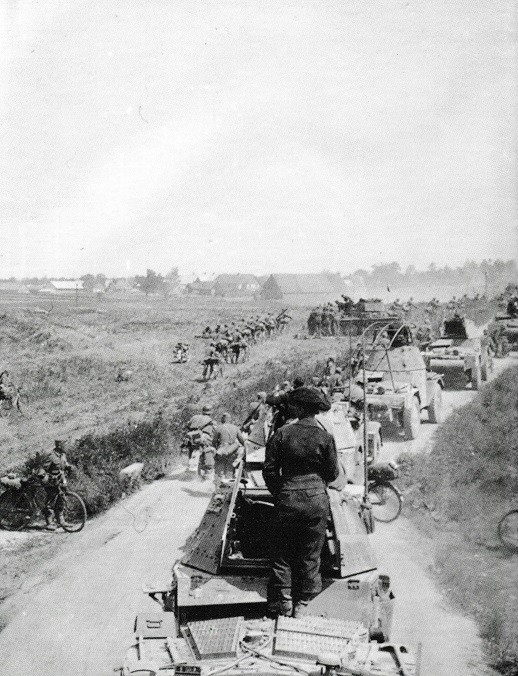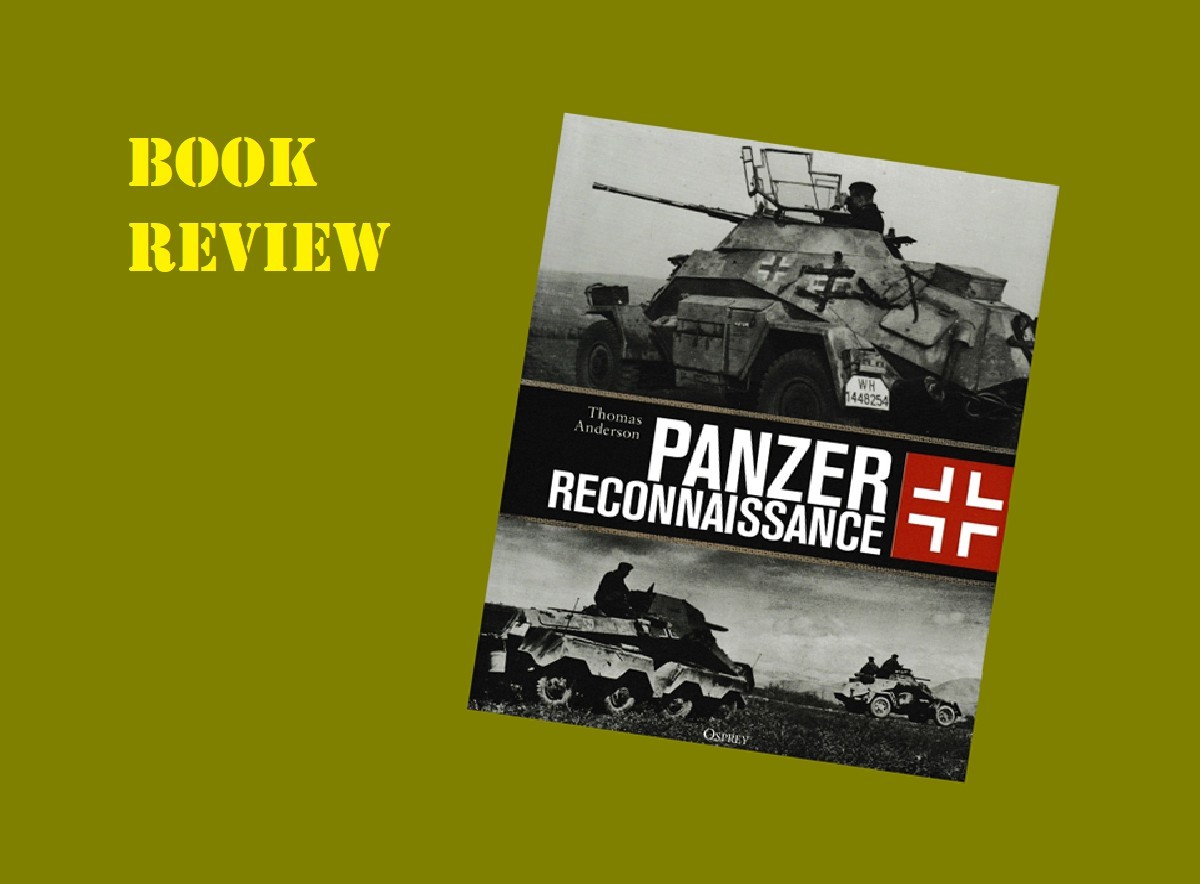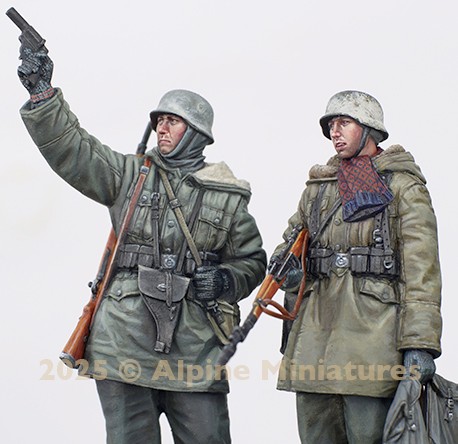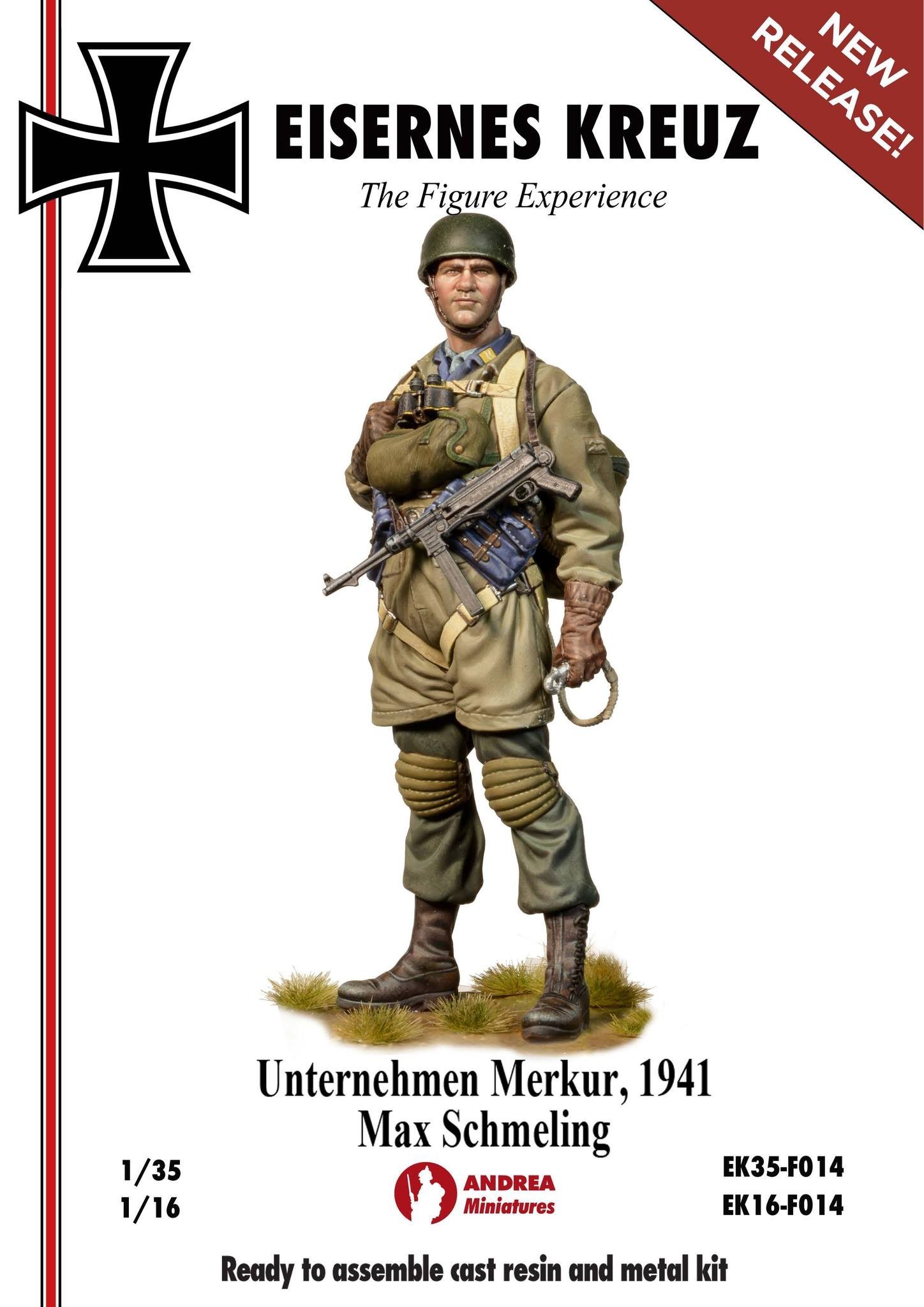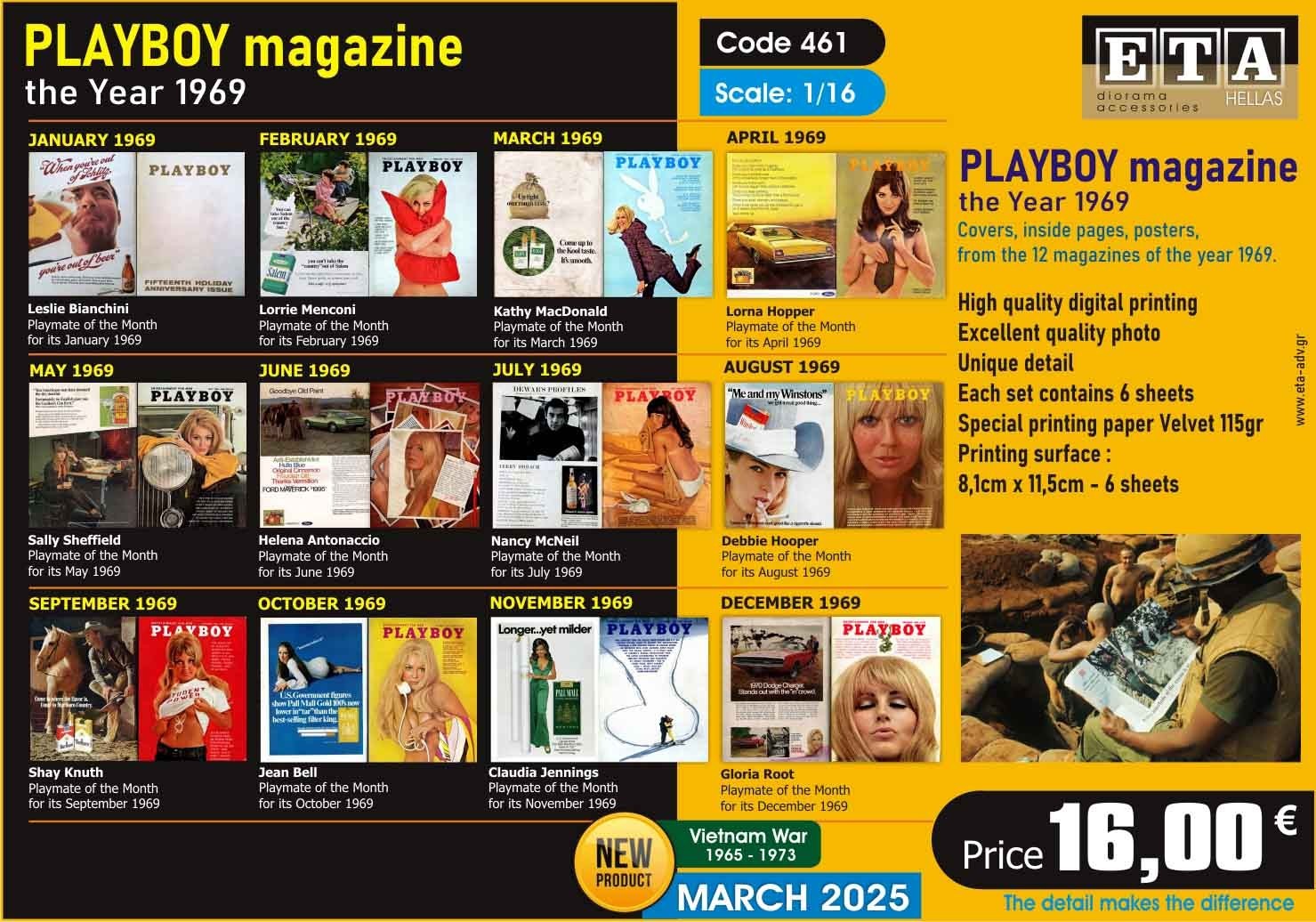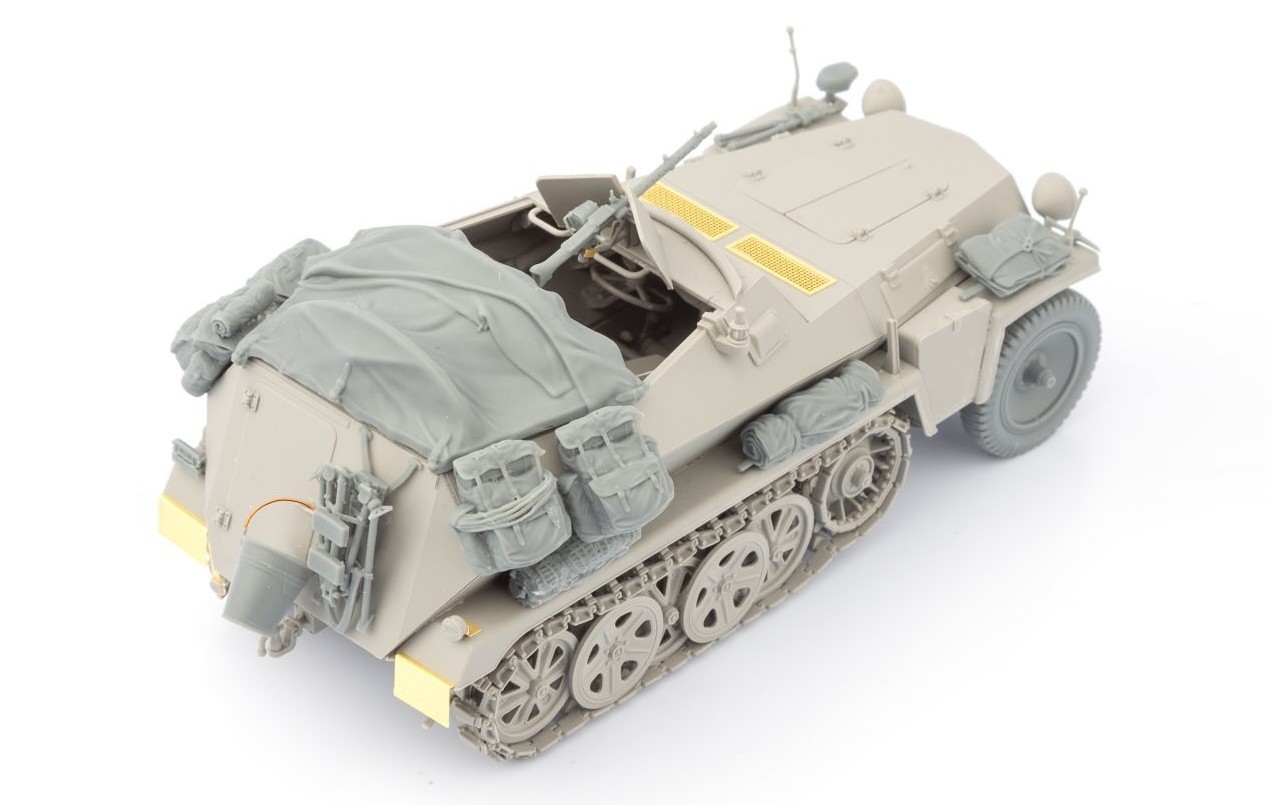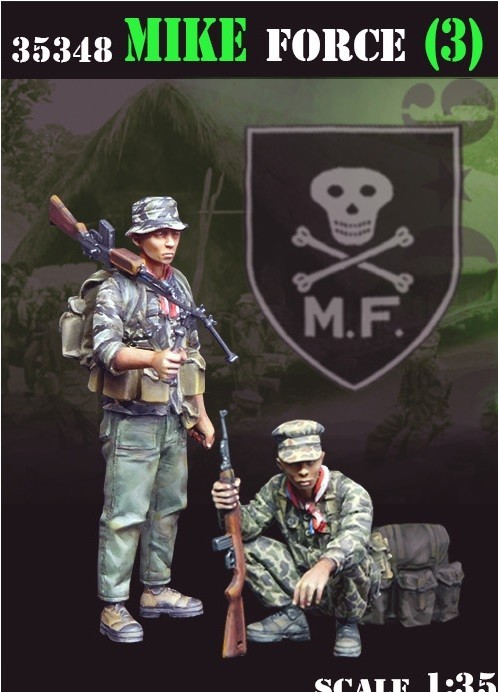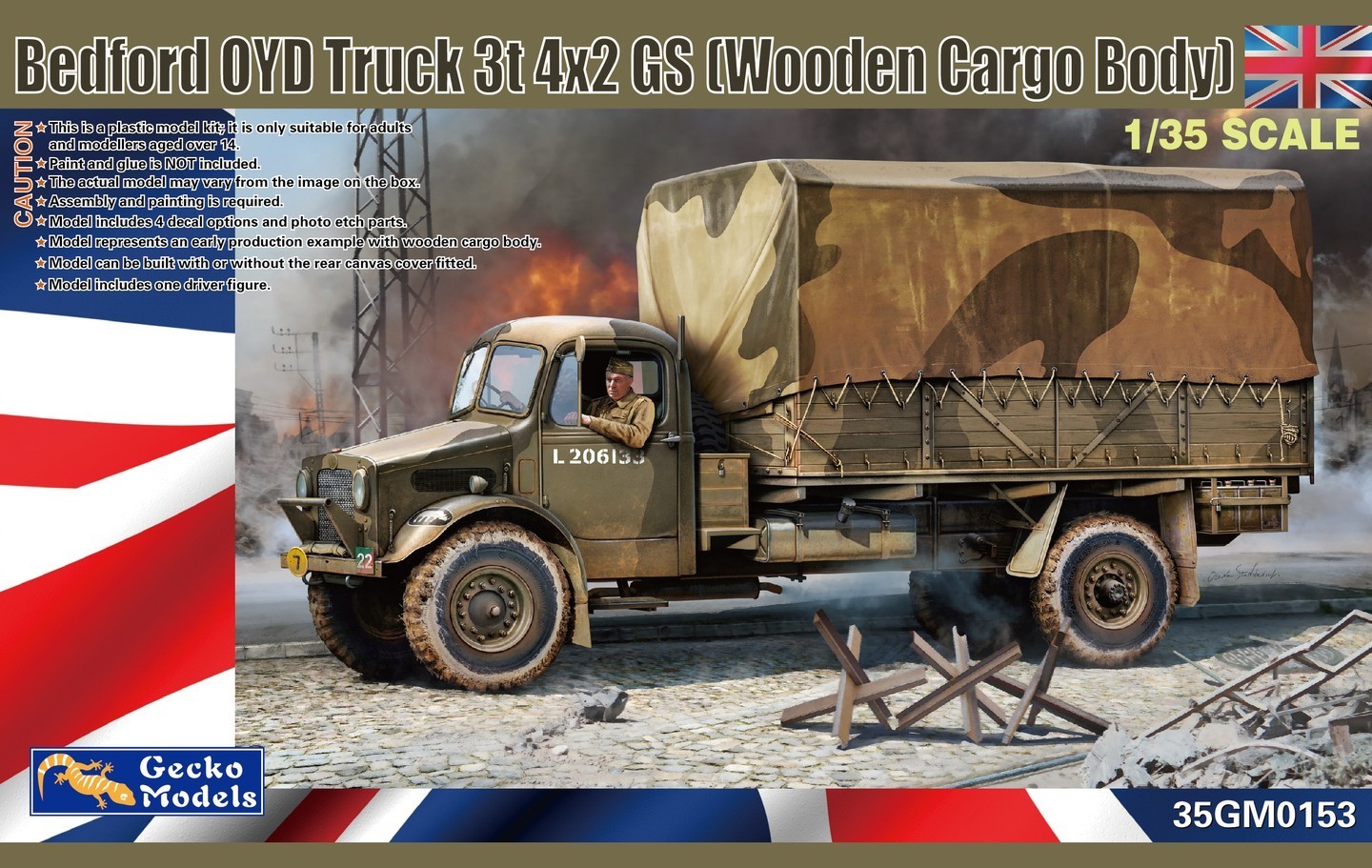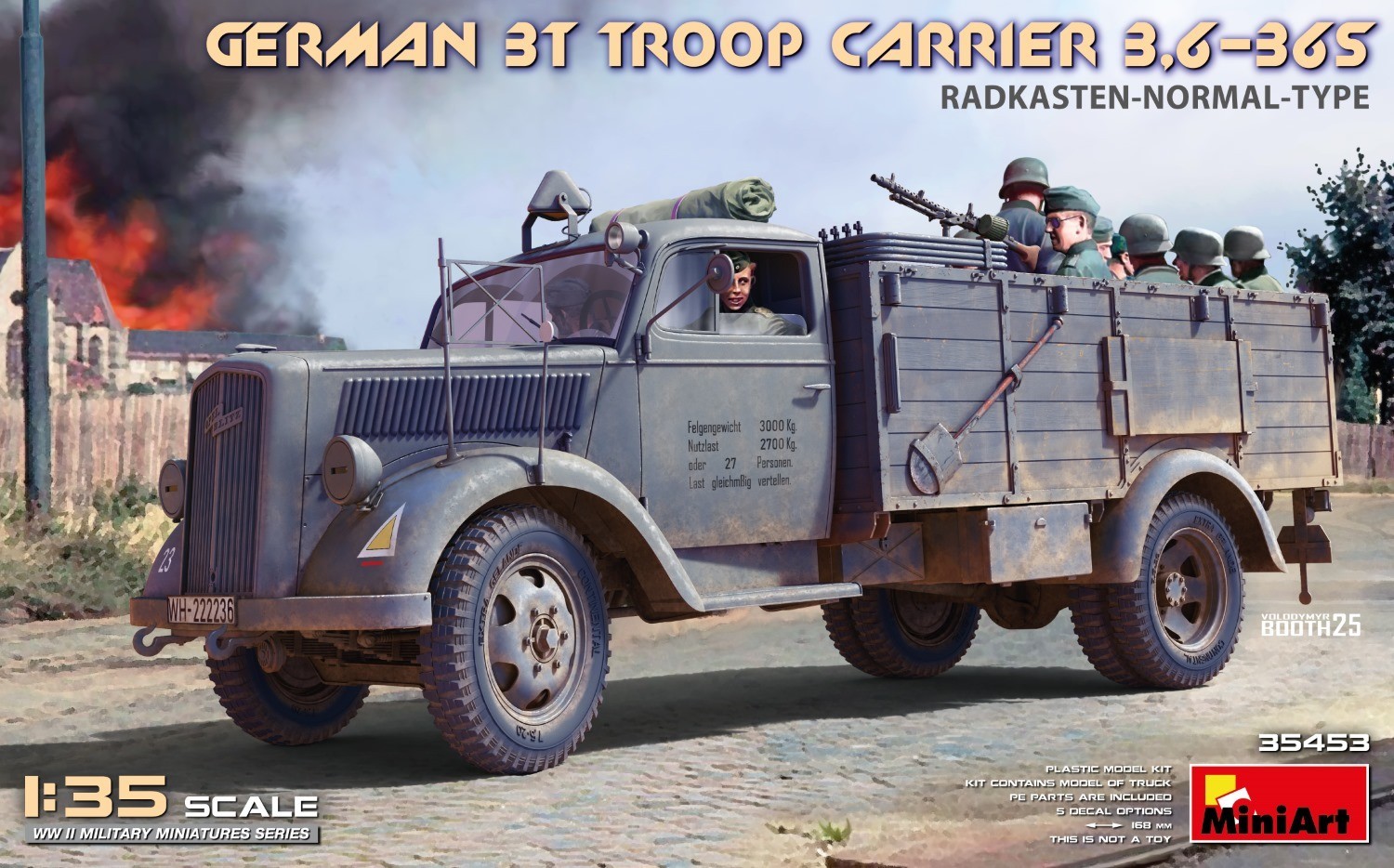HISTORY:
** Reconnaissance forces were a key component of the Panzer divisions in the Wehrmacht in World War Two. These highly mobile divisions had a vital need for good quality battlefield intelligence, and the battalion-sized motorized units provided this. These units were equipped with a mixture of armoured cars and motorcycles, and often operated far ahead of the battlefront to survey the terrain, observe any positions and identify enemy forces - key information required ahead of any armoured assault.
In the second half of the war, with Germany on the strategic defensive, armoured reconnaissance troops found themselves increasingly drawn into combat operations, and even holding sectors of the line. At the same time, more modern equipment was brought in, with motorcycles phased out and purpose-built armored personnel carriers (Schützenpanzerwagen) introduced.
This highly illustrated volume by Thomas Anderson uses original German archival material, after action reports and previously unpublished images to reveal the full history of the reconnaissance forces of the Panzer divisions. **
** Quoted from the back cover of the book.
THE BOOK:
Osprey Publications has released Panzer Reconnaissance by author Thomas Anderson. It is a 288-page hardback book that comes with a glossy paper dust jacket. Included with the text are black and white photographs, and an informational chart detailing vehicle numbers. It has a 2023 copyright, a publication date of April 25, 2023, and the ISBN is 978-1-4728-5502-2.
THE CONTENTS:
Introduction
Chapter 1: Motor Reconnaissance
Chapter 2: Armoured Cars
Chapter 3: Motorized Battalion
Chapter 4: 1939 – Poland
Chapter 5: 1940 – France
Chapter 6: North Africa
Chapter 7: Soviet Union
Chapter 8: 1943 – The Force Grows
Chapter 9: Modern Reconnaissance
Chapter 10: Captured Vehicles
Index
Acknowledgements
THE TEXT:
Author Thomas Anderson provides a well written text detailing German panzer reconnaissance during World War II. The contents portion where I listed the contents of the book is accurate as to what is discussed. Thomas Anderson goes into great detail regarding what was included in the organization of the reconnaissance units and discusses each individual component to include, staff section, signals platoon, armored car company, motorcycle company, heavy company as well as infantry divisions, panzer divisions, mountain divisions and SS divisions. Also discussed are early armored cars, numbers produced, faults found, improvements made and the designs and components that were used on future vehicles. Anderson also provides excellent information on German armored cars, half-tracks, motorcycles, soft-skinned vehicles and reconnaissance tanks. Some if the information provided on the vehicles include details of each specific type of vehicle such as their engine size, armor and weapons mounted, numbers produced and used as well as the battle fronts where they were used to include Poland, France, North Africa and the Soviet Union and also specific actions taken, locations, dates and the outcomes of the actions. A section of the book that I was pleased to see was the last chapter which deals with captured vehicles. Captured vehicles and equipment is a favorite subject of mine and so I enjoyed that portion of the book, I was just a little disappointed that it was a short chapter. Anyone interested in World War II German reconnaissance and the role it played during World War II. The German armor, vehicle, captured vehicles and military uniform, equipment, and small arms enthusiast, as well as the scale modeler, will find this book very informative and interesting. As I read through the text, I didn’t notice any spelling or grammatical errors throughout the book. Grammar and spelling might not be an important factor to everyone; however, it is something that I take notice of and pass on my findings. Anyone wanting to add an excellent reference and history book on German panzer reconnaissance during World War II to their personal library will be pleased with this informative and interesting book.
THE PHOTOGRAPHS:
A total of 282 black and white photographs are included in this volume. There are no color photographs featured. The photographs range from wide angle photographs to close-up detailed photographs. They contain a combination of in-action photographs, photographs removed from motion pictures, to photographs that have been staged for the photographer. In addition to German armor, the photographs also give the reader excellent reference material on subjects such as soft-skinned vehicles, national and unit markings and symbols, captured armor, gear storage on the vehicles, battle damage, interiors of fighting compartments and engine compartments, convoy formations, uniforms, small arms, and other such subjects in nice detail. Two of the photographs that I found to be particularly interesting is one showing two Mashinensatz GG 400 “Tiger Würfel” portable generators being used to power radio equipment in a reconnaissance vehicle and the other is of two German armored cars, a Sd.Kfz. 231 and a Sd.Kfz. 232, both of which are carrying flag draped coffins on their engine decks. I haven’t seen many of the photographs featured in the book before and I was pleased with this. I consider that a bonus as it is nice to have a reference book that contains several lesser-known photographs as opposed to overused photographs that many books tend to contain. The majority of the photographs are nice, clear, centered and focused images and are of a good quality; however, a few have an out of focus look to them and some appear to be too dark, and others appear too light. This is typical for the discussed period of history and the quality of the photographs are of no fault of the author and do not take anything away from the book. Author Thomas Anderson stuck to the title of the book and chose subject specific photographs and did not include photographs that strayed from the main subject of the book. The photographs will prove to be valuable to the scale military modeler as well as anyone interested in World War II German armor and vehicles due to the details they contain.
THE CAPTIONS:
The captions are well written and are very detailed and explain the accompanying photographs in great detail eliminating any doubt as to what is shown and taking place in the photograph or illustration. The captions go into very specific detail as to the specific military vehicle shown, specific military units, specific individuals, dates and locations, and other such pertinent information. As I read through the captions, I didn’t notice any spelling or grammatical errors. As I stated before, grammar and spelling might not be an important factor to everyone, however it is something that I take notice of and pass on my findings. The captions themselves are basically miniature history lessons as they detailed what is happening, or happened, in the photographs and give specific detail as to the who, what, where, why and when. I was very impressed by Thomas Anderson’s captions as they are very helpful to the reader due to their detailed content as opposed to other captions, I have seen that are very brief and lack detail.
Osprey Publishing also offers Panzer Reconnaissance as:
eBook (PDF) ISBN: 978-1-4728- 5500-8
and
eBook (ePub) ISBN: 978-1-4728- 5501-5
Osprey Publishing’s Panzer Reconnaissance is also available as an electronic Kindle version through Amazon.com.
PRICE:
UK £35.00 / US $50.00 / CAN $67.00
This book was provided to me by Osprey Publishing. Please mention that you saw the book reviewed here on the KitMaker Network when you make your purchase. Thank you.
